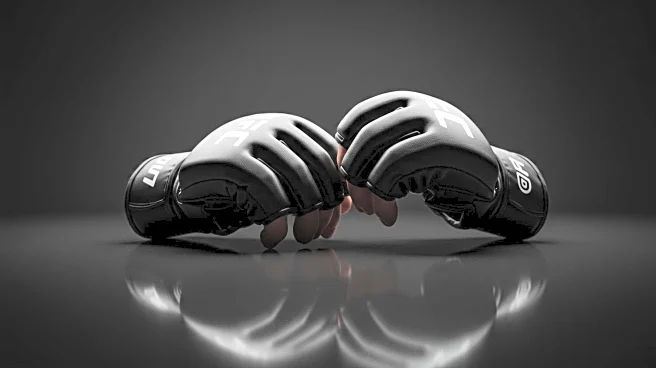What's Happening?
Corey Anderson, a prominent mixed martial artist, has revealed insights into why he was not granted a title shot during his tenure with the UFC. Despite being a top-ranked fighter in the light heavyweight division and securing victories over notable opponents like Glover Teixeira and Jan Blachowicz, Anderson was informed by UFC Chief Business Officer Hunter Campbell that his lack of social media presence was a significant factor in not receiving a title opportunity. Anderson, who has since moved to Bellator and the Professional Fighters League (PFL), attributes his career trajectory to his preference for focusing on family and personal life over self-promotion on social media. This revelation highlights the growing influence of social media in sports, where fighters with larger online followings are often prioritized for high-profile matches.
Why It's Important?
The situation underscores a broader trend in sports where marketability and social media influence can outweigh athletic performance in determining opportunities. This shift has implications for athletes who may not engage heavily in self-promotion, potentially affecting their career advancement and earning potential. For the UFC and similar organizations, this approach can drive ticket sales and viewership, but it may also lead to criticism regarding the fairness of match-making decisions. Athletes like Anderson, who prioritize performance over publicity, may find themselves at a disadvantage in this evolving landscape, prompting discussions about the balance between sport and entertainment.
What's Next?
As Anderson continues his career in the PFL, he aims to secure significant fights, potentially against high-profile opponents like former UFC champion Francis Ngannou. Meanwhile, the UFC and other organizations may face increasing scrutiny over their emphasis on social media presence in fighter promotion. This could lead to changes in how athletes are marketed and how opportunities are distributed, as stakeholders consider the long-term impact on the sport's integrity and athlete development.
Beyond the Headlines
The emphasis on social media presence raises ethical questions about the commercialization of sports and the potential marginalization of athletes who do not conform to this model. It also highlights a cultural shift where digital influence can overshadow traditional measures of success, prompting a reevaluation of what it means to be a successful athlete in the modern era.








